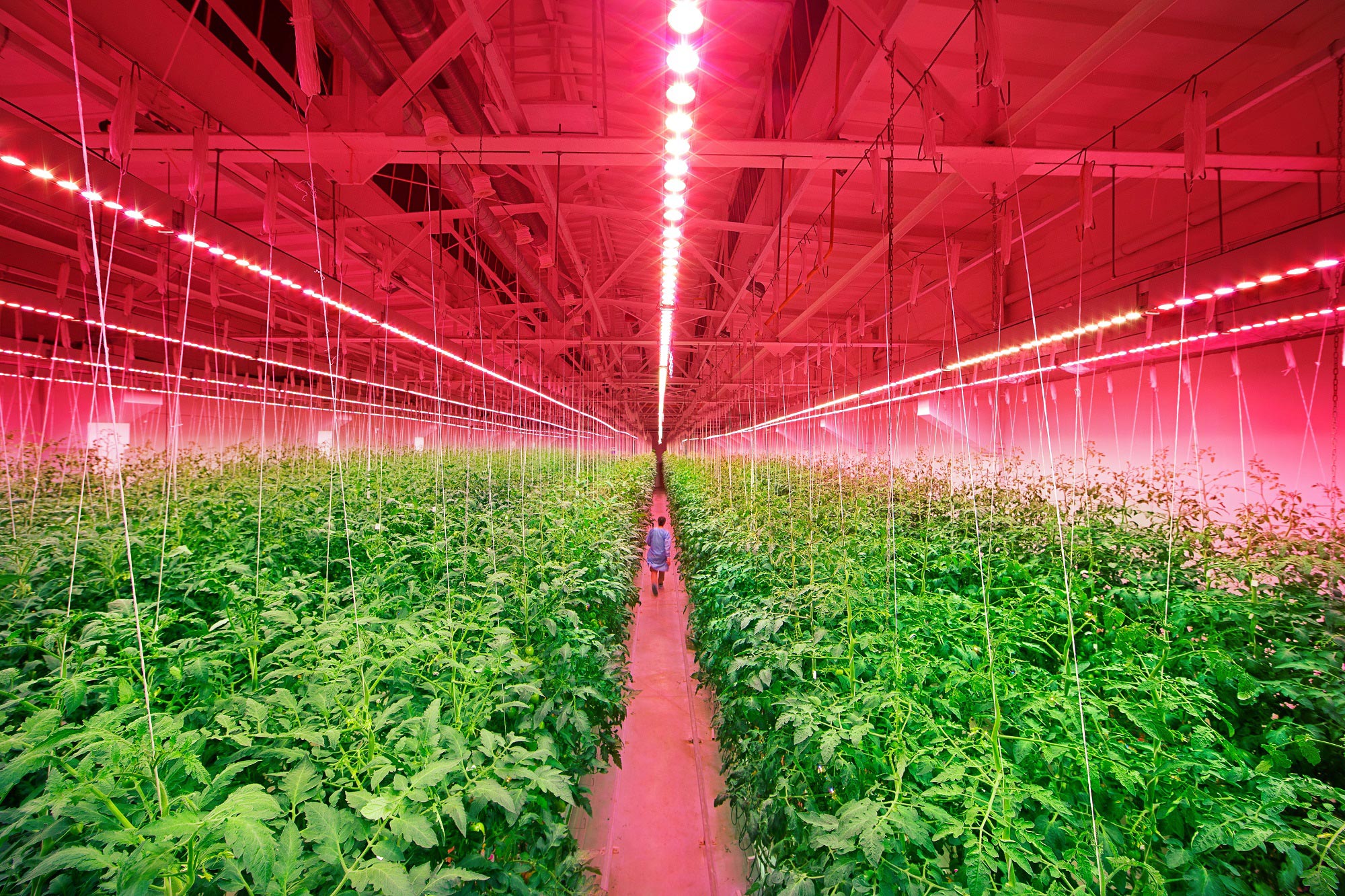The DesignLights Consortium (DLC) released the final version of its Technical Requirements for LED-based Horticultural Lighting: Version 2.0, an update that will continue the industry transition from traditional lighting data and metrics to horticultural-specific lighting data and metrics that best represent horticultural lighting performance. The changes have an effective date of March 31, 2021.

(Image: Signify)
After analysis of stakeholder comments on Draft 1 of the policy released in May and in order to allow continued development of the nascent horticultural lighting market, the DLC determined that a change in the efficacy threshold for the Horticultural Lighting Qualified Products List (QPL) is not warranted at this time. The current photosynthetic photon efficacy (PPE) threshold of ≥ 1.90 µmol × J -1 will remain constant with V2.0. The DLC will review this aspect of the Technical Requirements in future versions of the specification.
The DLC’s Horticultural QPL currently contains more than 125 products, with more being reviewed and added regularly. Importantly, an increasing number of electric utilities rely on the DLC horticultural lighting specification and QPL in the design of energy efficiency programs for commercial cultivators. About a dozen utilities now require the use of QPL products as a prerequisite for EE incentives; many others across North America have incorporated the DLC Technical Requirements into their programs while not yet requiring use of products on the QPL.
Furthermore, two states with cannabis-specific energy efficiency regulations offer a compliance pathway that requires use of the DLC’s Horticultural Lighting QPL along with a threshold PPE. To assist licensees in these states, the DLC’s Horticultural Lighting QPL offers a search filter to more easily find compliant products for these regulations.
Among updates in V2.0 of the Horticultural Technical Requirements is continued implementation of the DLC’s requirement that manufacturers use horticulture-specific terms to describe the flux maintenance of their submitted fixtures, rather than measurements expressed in lumens. Similarly, V2.0 updates language to use acronyms directly referenced in the American Society of Agricultural and Biological Engineers’ ANSI/ASABE S640: Quantities and Units of Electromagnetic Radiation for Plants.
V2.0 also requires that QPL products be certified by an Occupational Safety and Health Administration Nationally Recognized Testing Laboratory, or Standards Council of Canada-recognized body, to the ASNI/UL 8800 standard for horticultural lighting equipment. In addition, the update requires that manufacturers submit performance data in the form of a new industry standard for reporting aspects such as spectral content and intensity distribution (the Illuminating Engineering Society’s (IES) TM-33-18 document).
After soliciting and gathering stakeholder comment with release of V2.0 Draft 1 in May, the DLC will also implement two changes designed to reduce testing burden and simplify the Horticultural QPL application review process. These include family grouping, which allows manufacturers to provide limited testing of the worst-case models within a product family group that demonstrate compliance with DLC requirements, and private labeling, which allows listing of products under multiple organizations and brands that are identical to the original equipment manufacturer (OEM) products already listed on the QPL.
Finally, with V2.0 the DLC is introducing two new optional reporting measures intended to convey flux and efficacy performance information across the range of electromagnetic radiation often associated with growth and development effects in plants (280-800nm). While not required for DLC qualification, manufacturers will have the option of reporting these measures for listing on the QPL under the V2.0 requirements.












